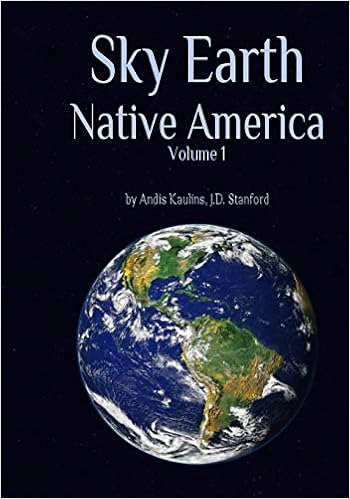A good example is the Federal Circuit Court, made up primarily of judges with tech backgrounds, whose tech-oriented decisions are often reversed by the U.S. Supreme Court for crass failings in legal judgment and a broad failure to understand what "the law" is fundamentally about.
The Federal Circuit's criticism of Judge Alsup in this case falls into this category of clear error. No judge on the Federal Circuit has as good an understanding of what is at stake in this case than Judge Alsup. Indeed, we have a great deal of doubt that the Federal Circuit "gets it" at all here.
Worse, over the past months we have been reading curious commentary about the case involving Oracle's suit against Google for alleged "copyright infringement" of their Java program APIs by Android.
A recent series of pro-Oracle articles at FOSS Patents typify the problem. We disagree strongly with the conclusions drawn at FOSS Patents and elsewhere and so it is time to focus on the broader considerations of big picture "LAW".
Consider the following reasoning which exposes the main underlying and practical legal ISSUE in the Oracle-Google case:
Our electrical system requires standardized sockets which permit the use of untold millions of electrical gadgets and appliances, which all connect to that standardized system via standardized plugs.
But let us assume that the inventors of electricity [as a public utility] had intentionally designed a dongle -- purchasable only from THEM -- that had to be inserted into any and every socket in order to access that electrical system. Would that kind of a "forced monopoly" have been legal then -- and would it be legal today -- to require that every gadget and appliance maker viz. user buy that dongle from a monopolist for each and every gadget or appliance or be barred from using the electrical system?
In our view, we find that kind of a requirement clearly illegal, then and now, as an illegal monopoly. Indeed, it is for this reason in the digital and general tech world that "standards" have developed so that every computer keyboard, for example, attaches workably to existing systems without users having to buy a dongle of some kind from "ONE company only" to make it work.
APIs (declaring code texts) are comparable "standards" in software.
That is why Google CEO Larry Page, as reported at Ars Technica by Joe Mullin, testified that "declaring code is not code", and he is exactly right in pointing to the great distinction between APIs and normal software code.
In the Oracle v. Google case, Android was designed as an independent program, much like our electrical "plug" above, to be able to plug into the already existing "socket" of Java. To be able to do that, they had to include the Java APIs. There is no controversy about that.
But Oracle demanded monopoly rights, grounding their claim in copyright law.
- FOSS Patents quotes Andy Rubin, then-SVP of Google in charge of Android:
"Java.lang apis are copyrighted" and that since "[S]un . . . own[s] the brand and ip[,]" "[S]un gets to say who they license the tck to[.]" - FOSS Patents further quotes the testimony of Thomas Kurian of Oracle Software Development:
"Q. [...] Mr. Kurian, what did you say to Google?
A. I specifically discussed -- we specifically discussed with Mr. Rubin that the Dalvik implementation and their implementation of Java needed to comply with the Java Standard specifications, which meant you had to implement the class libraries completely and also pass the TCK.
[emphasis added by LawPundit]
Q. Did Google accept that?
A. No." - Nor could the APIs, i.e. the "class libraries" be altered! FOSS Patents quotes Dan Bornstein, a technical expert at the time as saying:
"We don’t ‘own’ the java.* API and so can’t go around altering it."
It is in fact very questionable whether legal copyright protection is intended and extends to protect this kind of "non-expressive text" and we, as a judge, would find that such fixed "declaring code" can not be copyrighted, because its purpose is not one of expression but rather of fixing standards of operation.
This case is not a question of Google "copying" expressive text for profit where they could have written their own text, rather and quite the contrary, they are barred from writing their own text. At issue is a matter of incorporating standard text (as code) that is absolutely required for something to work. That is an entirely different legal matter in terms of IP law. Is that "expression" as protected by copyright? Not in our book.
Of course, the damages that Oracle request relate not to the value of the APIs but to the immense success of Android as an operating system, from which Oracle wants an absurd cut, having failed to develop their own Java system further, which they had an option to do, but were unable. As written at Ars Technica by Joe Mullin:
"As for the copyrighted APIs, they were a tiny part of the language. The 11,000 lines of code they represent are "less than one-tenth of one percent" of the 15 million lines of Android code. Later in his statement, Van Nest compared the code to the labels on a filing cabinet."For those few lines of code Oracle wants BILLIONS of bucks. We see here again, as in the case of the Apple firm's absurd patent actions against Samsung, that some companies view intellectual property law as a golden goose to reap billions of dollars in windfall cash which THEY themselves DID NOT EARN, but which someone else DID EARN, through their hard work, applied marketing skills, through their own software coding, etc. Even if Oracle were entitled to any damages, which WE would NEVER grant to them, these would rightly be minuscule amounts, compared to what is being asked for.
If the final resolution of this case were ultimately to be in favor of Oracle, it would be a dark chapter in the progress of technology and would constitute the denial of common sense in the law, with vast negative ramifications for the entire software programming industry, which would be faced with "dongle"-like API monopolies everywhere, greatly stifling software programming and thus development of the technology sector of industry.
No court whose judges had half a brain in the Wizard of Oz sense would permit that kind of foolishness.
That the Federal Circuit in their initial view of this case could not see through this obvious scam is no surprise, as disappointing as it may be, so that there is no doubt that this case will ultimately go to the U.S. Supreme Court, where we expect the Supremes to once again lecture the Federal Circuit about their failed understanding of the fundamentals of law and legal common sense.
Have we been wrong previously in identifying flawed Federal Circuit Court decisions? At LawPundit, not yet, in over 12 years of posting about the law.


